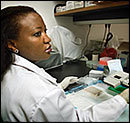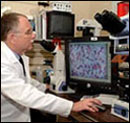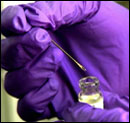Vaccine Safety and Adverse Events
On This Page:
Vaccines work best when most members of a community are vaccinated - the more people who are vaccinated, the lower the possible risk of anyone's exposure to vaccine-preventable diseases. Because vaccines must be safe for use by as many people as possible, vaccines are developed in accordance with the highest standards of safety. Years of testing are required by law before a vaccine is licensed and distributed. Once in use, vaccines are continually monitored for safety and efficacy. As a result, the United States currently has the safest, most effective vaccine supply in history.
However, as with any medical procedure, vaccination has some risks as well as substantial, proven benefits. Individuals react differently to vaccines, and there is no way to absolutely predict the reaction of a specific individual to a particular vaccine. Anyone who takes a vaccine should be fully informed about both the benefits and the risks of vaccination. Any questions or concerns should be discussed with a physician or other healthcare provider.

Concerns about the Safety of Vaccines
Some parents wonder why their children must receive shots for diseases that do not seem to exist. Myths and misinformation about vaccine safety abound and can confuse parents who are trying to make sound decisions about their children's healthcare.
- Recent Issues of Interest
Fainting after vaccination, Kawasaki disease and RotaTeq vaccine, mercury and vaccines (thimerosal), etc. - Archived Concerns about Vaccine Safety
Chronic diseases, inflammatory bowel disease and the measles vaccine, multiple vaccinations and the immune system, etc. - IAC: Responding to Concerns About Vaccines (exit)
Immunization Action Coalitions's vaccine safety resources
Reporting Side-effects
FDA and CDC analyze VAERS data to identify potential new vaccine safety concerns that may need further study.

Vaccine Safety Overview
As science continues to advance, we are constantly striving to develop safer vaccines and improve delivery in order to better protect ourselves against disease. This overview will focus on vaccine research, how vaccines are licensed, how safety is monitored, and how risks are communicated to the public.

Vaccine Safety Research
Research activities of the CDC Office of Science Coordination and Innovation

Vaccine Safety Datalink (VSD) Project
A collaborative project that provides comprehensive medical and immunization histories for more than 5.5 million people annually, which are derived from participating managed care organizations that contain more than 9 million members.
Content last reviewed on June 1, 2008
Content Source: National Center for Immunization and Respiratory Diseases